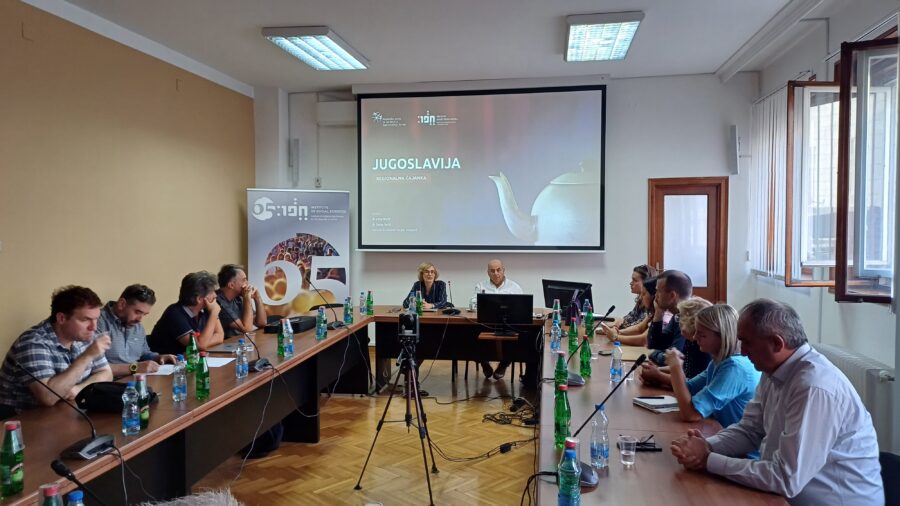Yugoslavia cannot be understood, nor should we try to do so starting from the question whether it was beneficial or harmful for any of the nations who lived in it, because these are not categories of historical science but of politics, emphasized Ivo Goldstein in his lecture “Yugoslavia – Ideal state framework, artificial creation or prison of nations“.
He pointed out that more than three decades after the breakup of Yugoslavia, none of the post-Yugoslav national historiographies has yet constituted itself as a social science that meets the requirements of modern science, but they are all still cocooned and continue to be servants of politics. Missing to indicate the difference between history and historiography (the difference between the past and the narrative about it) historiography in the former Yugoslav region is, instead of scientifically dealing with political problems, serving as a (voluntary) instrument of politics.
Goldstein believes that historians could be the main initiators of changing this situation, first by starting with the demythologizing of Yugoslavia, and from there beginning to deal with topics that are fundamentally important for the understanding of the history of Yugoslavia. In doing so, they would have to avoid a typical mistake when talking about Yugoslavia, which for him is reflected in the application of today’s values to the time in which Yugoslavia existed. It is this absence of a necessary scientific contextualization that wrongly presents Yugoslavia as an ideal state, an artificial creation or a prison of the people, although historically it was none of that.
In the last part of the lecture, Goldstein referred to the challenges of Yugoslavia, stressing first of all that the territory between the Alps and the Aegean Sea has never been under a unified administration since the fourth century AD and that therefore the attempt to create such a state was a challenge in itself. At the same time, the changes in the (self)-perceptions of single republics caused dynamics that did not necessarily strengthen the common state. For example, while Croatia was one of the least developed areas within Austria-Hungary, after joining Yugoslavia, it became one of the two most developed. Nevertheless, despite all the shortcomings and anti-democratic tendencies, Yugoslavia was, according to Goldstein, the only state project, which successfully marginalized extreme nationalism, which had marked this area before 1918, and especially after 1991 until today.
The lecture took place on 25 September, 2024 as part of the cycle Regional tea party “Yugoslavia”, organized by the Academic Network for Cooperation in Southeast Europe in collaboration with the Institute of Social Sciences.

